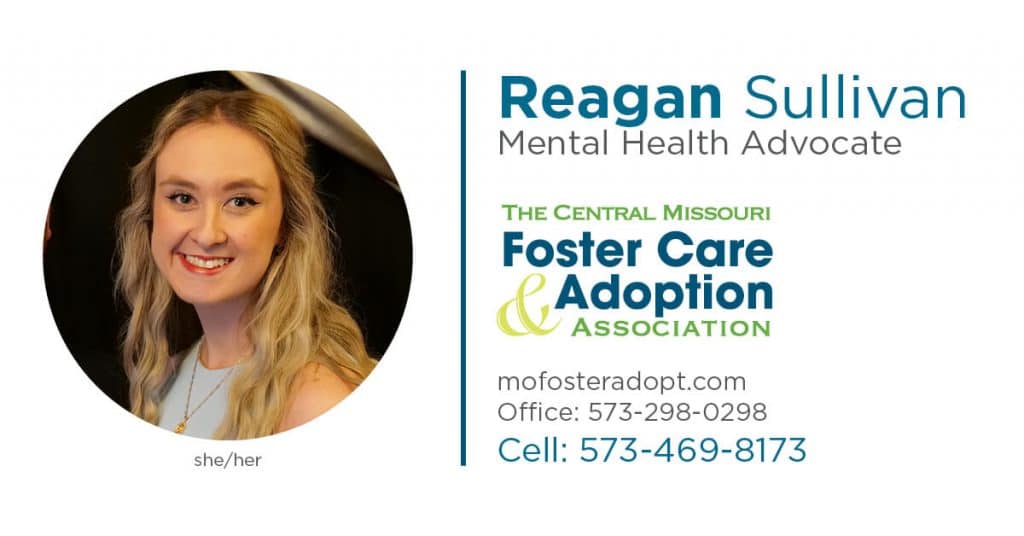C’est la vie is a French saying that means “That’s life.” It is a phrase of acceptance or tolerance for things being the way they are. In other words, radical acceptance.
Accepting this weather
Lately, this winter weather has been less than favorable. I mean, really – it has been rainy, cold, gloomy and grey, and the sun has been setting way before many of us are even home to enjoy the evening.
Now, we can look at this and say “I hate winter. It isn’t fair that I live in Missouri where the weather is everchanging.” “Why does it have to be winter?” or maybe “I refuse to accept this weather. In my head, I’m on a beach in Mexico getting tan.” But, what good is this thinking serving us? How is it helping us to deal with the winter weather?

What if, instead, we said, “It is cold outside, and that sucks.” Or “I don’t like this weather. I understand that it is just another season, it is necessary, and it will pass.” Here, we chose to accept that winter is a thing (a wild thing here in Missouri) and that we cannot do anything about it. We didn’t agree to like winter, but we fully acknowledged it for what it is.
You don’t have to like it.
I’m not saying that you have to like winter, go play in the snow, or give up your dream of being on a beach in Mexico sometime soon. I’m just asking you to consider accepting the weather for what it is. Winter is a season, a part of our environment and ecosystem, and there is absolutely nothing we can do about it.
We could keep fighting it or denying it or ignoring it, but what good is that? I don’t know about you, but I’d much rather say, “Yup, it is cold outside” and put on a coat to keep warm rather than refusing to accept the temperature and wearing shorts outside instead. Accepting the weather and preparing for it sounds much better than trying to force my idea of reality (such as dreaming of sunny and 75) onto something I cannot change.
Radical Acceptance: It’s a good thing
What I am getting at here is that there is this concept known as radical acceptance. It is a distress tolerance skill that is a part of DBT, or dialectical behavior therapy. It is meant to help people deal with intense emotions in a more productive, purposeful, and meaningful way.
Basically, what radical acceptance says is that we can work to totally and thoroughly accept the reality of life’s situations for what they are or what they mean (in a sense that we cannot control the world around us). Again, it isn’t to say that we have to like or approve of what is happening or has happened, but just that we are choosing to accept that it did happen or that life really is this way right now, and to not sit or get stuck in unhappy thoughts. That fighting the reality of a situation just takes up more energy, is exhausting, and doesn’t change what happened.
It means that we stay conscious of how we interpret information and that we don’t use up our energy on things we simply cannot control. Basically, that we start off with the thought of “It is what it is” or “c’est la vie.”

Accepting your reality
Once we can accept reality for what it is, we can truly start to work toward changing our lives for the better. Just like how we can look at the weather, accept that it is cold, and put on a coat, we can look at our mental health, for example, and say, “Yeah, I am struggling,” and then choose to get help. We can’t move forward in life if we are stuck in the anger, denial, and suffering. It allows us to shift our focus to the things we can control and make meaningful differences in our own lives.
We cannot change the past, and we cannot ignore it to make it go away. But we can choose to accept it, move forward with that information (maybe even take time to process it first), and have a new perspective toward the present and future. Practicing radical acceptance can help you to stop unhelpful thoughts and to free yourself of some of the awful feelings of “should’ve” “would’ve” “could’ve.”
I know this isn’t an easy concept to take on, but it is doable. With practice, intention, and mindfulness, we can work to reframe our thinking. And, start to move on without staying stuck in the intense emotions of things we cannot control. Life can be incredibly difficult sometimes. And, when bad things happen, those feelings are intense. I know. And I’m not saying to ignore or downplay your reality. I challenge you to accept it for what it is and utilize your energy in a way that helps you to move forward. You can do this. I believe in you.
CMFCAA’s Advocacy Team is here for you.
We know that sometimes things are too much to handle or just accept. Sometimes, no matter how much effort you put in, you need need some help. We are here for you to be that extra support, to lift burdens, and to help you navigate it all. Being a foster/adoptive/kinship caregiver is hard work. We want you to know that we see you and we are here for you. Visit our Advocacy page for more information about us.

**This is not to be considered professional advice. Please seek help with a professional licensed counselor or social worker to find what works best for you and your family.**

